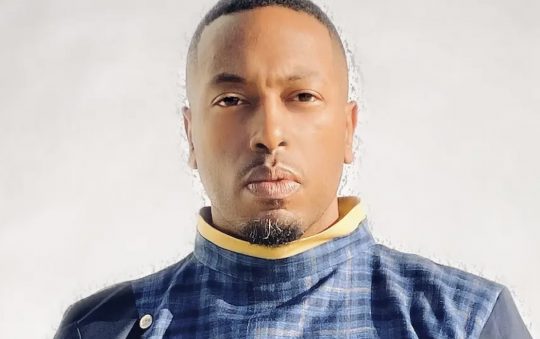
The Brotherhood Crusade showed another story of athletes in activism when they hosted an intimate conversation between two-time NBA champion Craig Hodges and Olympic gold medalist Ron Brown. The event was about public figures who take a stand and sacrifice their jobs to help others.
“We wanted to make sure our young people had an opportunity to think bigger than themselves and think beyond themselves,” said George Weaver, program director at the Brotherhood Crusade. “We wanted to make sure that the young people had an opportunity to be able to reflect upon that as they go into this holiday.”
Craig Hodges played for the Chicago Bulls in the early 1990s and was a three-time winner of the 3-Point contest. When the Bulls visited the White House, Hodges gave a letter to former President George H. W. Bush, telling him to prioritize the needs of the poor and minority communities. Hodges was blackballed in the league soon after.
“It was almost a natural progression because we were taught to write letters to our congress people when we were young,” Hodges said.
The panel was moderated by actor and director William Allen Young, who asked the audience thought-provoking questions along with facilitating the conversation between Brown and Hodges.
Several topics were discussed, one being the economic side of professional sports and why the causes that former NFL star Colin Kaepernick protested for got him exiled from the league. Brown explained how many other players who joined Kaepernick’s National Anthem protest are no longer in the NFL. He noted that what Kaepernick was a “tremendous” act.
“He’s a true trooper,” Brown said about Kaepernick. “When you can stand for something like he stood for something and lost as much as he lost in that journey, I got his back.”

fAnother topic being discussed was the generational difference between Hodges and the youth who attended the event. His mother was a secretary in the Civil Rights Movement and he majored in Black studies at Cal State Long Beach, under the tutelage of Dr. Maulana Karenga. Younger generations have a different upbringing. Instead of having activists to look up to, they were influenced by rap culture.
Brown noted how the NFL is a marketing company, Hodges said that pro athletes can only get away with a certain level of activism before being restricted by their franchises. His advice is for pro athletes to concentrate on their careers and use their money to develop resources for their community.
“The ownership of Black men in professional sport is the last batch in the plantation,” Hodges said. “We who are under that, we walk a fine line.”
Previous generations cared for the common good for others and unity, this showed in the sports world through athletes like Muhammad Ali. The sports world has changed drastically since, athletes sign multimillion-dollar contracts and networks spend hundreds of millions in TV rights for games.
“How would they respond today?” Young said. “We need to know from this generation [are] we still willing to take the moral stand or are at a point socially where that is not as important anymore?’
L.A. Trade Tech college student athlete John Thomas said he would be willing to sacrifice for the greater good of African Americans if he was placed in that situation.
“With us, to be honest, it wouldn’t be an NBA, it wouldn’t be an NFL, it wouldn’t be no sports,” he said. “As Black people, we have to come together and fight for what is right.”







